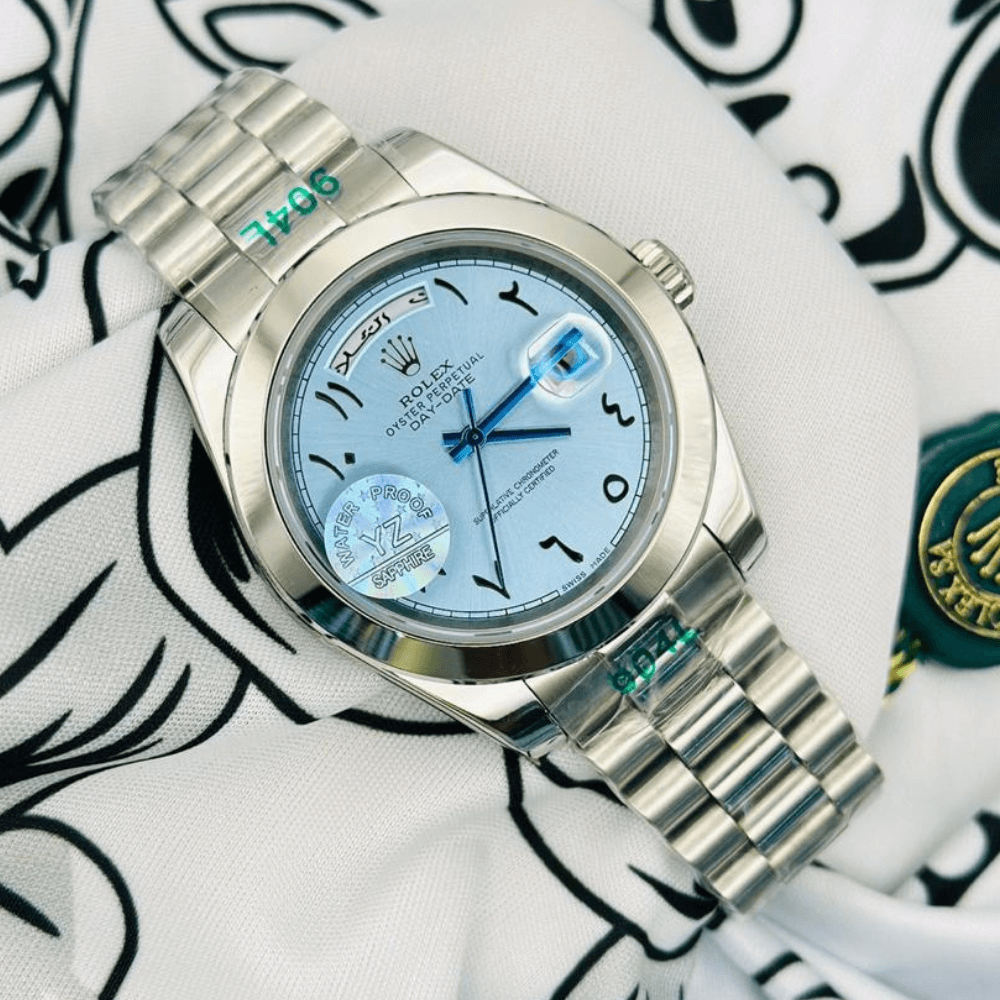Dubai is a city synonymous with opulence, grandeur, and style. From luxury cars cruising down Sheikh Zayed Road to designer boutiques lining the malls, the city has cultivated an image of elite sophistication. Yet, within this culture of lavish living lies a growing trend clone watches. These high-quality replicas closely resemble expensive timepieces, mimicking the aesthetics and functionality of premium brands like Rolex, Omega, or Audemars Piguet. But as this market grows, so too do the ethical concerns surrounding the wearing of such items.
Understanding Clone Watches
Low-quality counterfeit watches are not the same as clones. They are frequently expertly made with comparable materials and mechanisms to the originals. Their allure stems from their capacity to provide the opulent appearance and texture of a high end clone watches in dubai at a significantly reduced price. They are available in some souks, secret stores, and through word-of-mouth vendors in Dubai.
Some consumers are misled into believing they are getting the real thing at a discount, while others are completely aware of what they are buying. The moral ramifications are still a hotly debated subject in both situations.
The Allure of Clone Watches in Dubai
Dubai’s culture encourages a certain level of outward appearance. Watches, often seen as a symbol of class and success, are a natural fit for this city. Clone watches allow many to participate in this lifestyle without spending tens of thousands of dirhams.
Tourists and residents alike are drawn to clone watches for their affordability, attention to detail, and the way they emulate the prestige of world-renowned timepieces. With Dubai being a shopping haven, it’s no surprise that the clone watch market thrives.
The Legal Perspective
Is it legal to purchase or wear a clone watch in Dubai? This is one of the first questions people ask. There is a grey area where the answer is.
Although it’s usually not against the law to own a cloned watch for personal use, it may be against the law to import or sell one, particularly if it incorporates trademarks and logos from well-known companies. Strict intellectual property laws are in place in the UAE to safeguard both brands and customers. Watches and other counterfeit items that infringe on trademark rights are frequently seized by customs.
Therefore, the industry that supports clone watches is operating on dubious legal ground, even though the average consumer may not be directly affected.
The Moral Dilemma Is It Right or Wrong?
Ethically, the issue is far more nuanced. Here are a few perspectives:
1. Support for Intellectual Property Rights
Buying and wearing clone watches can be seen as an endorsement of intellectual property theft. Brands invest heavily in research, innovation, design, and craftsmanship. Clone manufacturers bypass all that effort, essentially stealing designs and benefiting from the brand reputation without contributing to the cost of maintaining it.
2. Economic Impact
The popularity of clones can undercut the luxury rolex copy watches industry, which employs thousands of skilled workers. If clone markets grow unchecked, it could harm legitimate companies and reduce demand for genuine products, affecting jobs and economies dependent on high-end manufacturing.
3. Deception vs. Transparency
Many buyers of clone watches do so knowingly and never attempt to pass them off as real. In this case, it becomes a matter of personal choice—comparable to wearing faux leather or costume jewelry. However, issues arise when people wear these watches to deceive others or elevate their social status falsely. This intent to mislead, even subtly, is where ethics are most questionable.
4. Sustainability and Waste
Ironically, some clone watch manufacturers use decent materials and offer watches that last years, reducing waste compared to fast-fashion watches. For consumers who simply like the design and aren’t brand loyalists, clones might even be viewed as a sustainable choice. But this benefit is rarely the driver of such purchases.
Cultural Acceptance in Dubai
In a city where luxury is highly visible and sometimes aspirational, clone watches are often tolerated in social settings. However, in elite circles or professional environments, being caught with a fake or clone watch can damage your reputation.
That said, there’s a growing trend of “honest fashion”—where people openly admit their accessories are replicas. This honesty has shifted the conversation away from shame and toward value-conscious style choices. Whether that’s a good or bad thing depends on your perspective.
Alternatives to Clone Watches
If you love the look of luxury but question the ethics of clones, there are alternatives:
- Microbrands: Many independent watchmakers offer original designs at a fraction of luxury prices.
- Pre-owned genuine watches: Certified used watches give you authenticity without the retail markup.
- Minimalist brands: Brands like MVMT or Daniel Wellington offer elegant designs that don’t mimic luxury models but still look classy.
Conclusion
Wearing cloned watches in Dubai or anywhere else is not always morally right. Social repercussions, legal frameworks, cultural perceptions, and individual values are all involved. The temptation to copy luxury is great in a city that thrives on it. Accessibility is provided by clone watches, but at what price?
Consider what you’re actually getting before buying a clone watch. Is it just an attractive accessory, the status, or the design? Navigating this ethical grey area with integrity begins with knowing why you made the decision and being open and honest about it.
